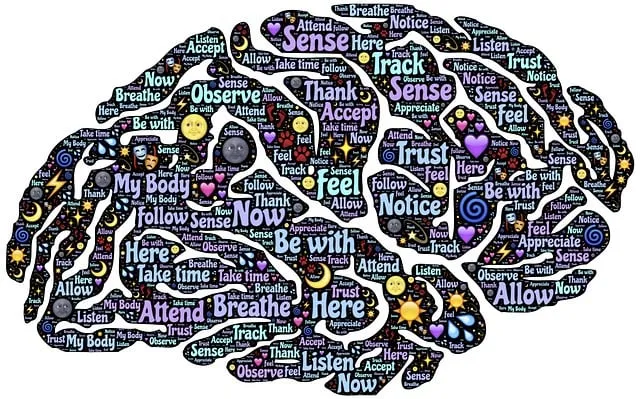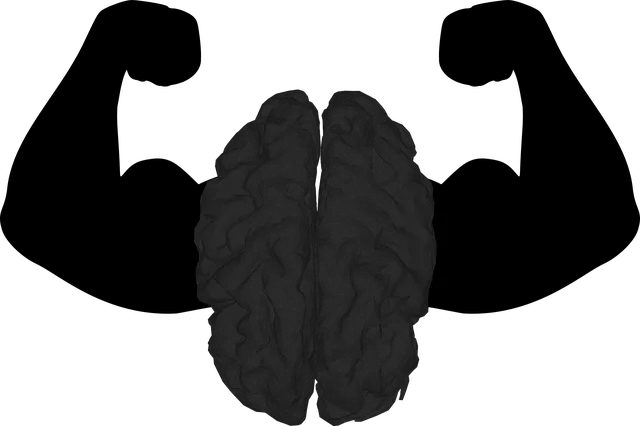In today's digital era, mental wellness coaching is gaining prominence within healthcare systems, particularly at major organizations like Kaiser Permanente in Centennial. This shift reflects a growing understanding of the link between mental and physical well-being. Mental wellness coaches employ strategies such as Social Skills Training and Community Outreach Programs to help individuals manage stress, anxiety, and improve overall emotional health. Kaiser Permanente's behavioral health services reviews highlight positive patient outcomes, demonstrating the effectiveness of these coach-led interventions. The organization integrates Emotional Intelligence with modern therapy techniques in their programs, fostering community engagement and personal growth. Evaluating these coaching programs requires a holistic approach, focusing on tangible improvements in mental health, engagement tracking, and changes in healthcare utilization, while cultural sensitivity is crucial for accurate assessments.
Mental wellness coaching programs are gaining prominence as a vital component of healthcare, addressing growing mental health concerns. This article explores the development and impact of such programs, particularly focusing on a case study of Kaiser Permanente Behavioral Health Services in Centennial. We’ll delve into understanding the need for coaching, examining strategies and best practices, and measuring program success through evaluating their effects. By drawing insights from this model, we aim to contribute to the evolving landscape of mental wellness support.
- Understanding Mental Wellness Coaching: A Growing Need in Healthcare
- Kaiser Permanente Behavioral Health Services: A Case Study
- Developing Effective Coaching Programs: Strategies and Best Practices
- Measuring Success: Evaluating the Impact of Mental Wellness Coaching
Understanding Mental Wellness Coaching: A Growing Need in Healthcare

In today’s fast-paced world, mental wellness coaching is emerging as a crucial component within healthcare systems, especially in major medical organizations like Kaiser Permanente. The demand for such services has been steadily growing, as recognized by Centennial’s focus on behavioral health. This shift reflects a broader understanding that addressing mental health issues is integral to overall well-being and requires personalized support. Mental wellness coaches play a vital role in guiding individuals through various challenges, from improving social skills and conflict resolution techniques to managing stress and anxiety.
By incorporating strategies such as Social Skills Training and Community Outreach Program Implementation, these coaching programs cater to diverse needs. Kaiser Permanente behavioral health services reviews often highlight the positive impact of coach-led interventions on patient outcomes. This growing trend signifies a promising direction in healthcare, where mental wellness is not just treated but actively nurtured, ensuring folks receive holistic support tailored to their unique journeys.
Kaiser Permanente Behavioral Health Services: A Case Study

Kaiser Permanente Behavioral Health Services, located in Centennial, offers a comprehensive review of successful mental wellness coaching programs development. This organization has pioneered innovative strategies that blend cutting-edge therapy techniques with a strong focus on Emotional Intelligence. Their approach not only targets individual clients but also integrates Community Outreach Program Implementation to create a supportive network within communities.
Through meticulously designed Mental Health Education Programs, Kaiser Permanente ensures that their coaches are equipped with the latest research and practices. This commitment to excellence has led to positive outcomes, as seen in numerous reviews highlighting improved mental health and enhanced coping mechanisms among participants. The program’s success underscores the importance of tailored coaching strategies that address both personal growth and community engagement.
Developing Effective Coaching Programs: Strategies and Best Practices

Developing effective mental wellness coaching programs requires a strategic approach that combines evidence-based techniques with a holistic understanding of individual needs. At Kaiser Permanente behavioral health services, reviews highlight the success of tailored programs that integrate various emotional well-being promotion techniques. One key strategy involves utilizing Centennial-based resources and communities to foster connectedness and support networks, crucial for long-term mental wellness.
The best practices in Mental Wellness Coaching Programs Development emphasize active listening, goal setting, and skill-building exercises. Coaches play a vital role in guiding individuals through these processes, helping them navigate challenges and celebrate victories. By incorporating depression prevention strategies and fostering resilience, these programs aim to enhance overall emotional well-being, as evidenced by successful Kaiser Permanente behavioral health services reviews.
Measuring Success: Evaluating the Impact of Mental Wellness Coaching

Evaluating the success and impact of mental wellness coaching programs is a multifaceted process that goes beyond mere satisfaction surveys. It involves assessing tangible improvements in participants’ mental health, such as reduced anxiety levels, enhanced coping strategies, and increased life satisfaction. Tools like pre- and post-program assessments, qualitative feedback mechanisms, and long-term follow-up studies can provide valuable insights into the program’s effectiveness.
At Kaiser Permanente behavioral health services reviews Centennial, for instance, researchers have employed various methodologies to gauge success. This includes comparing mental health outcomes before and after coaching, tracking participants’ engagement with the program, and analyzing changes in their utilization of other healthcare services. Moreover, cultural sensitivity in mental healthcare practice and risk management planning for mental health professionals play crucial roles in ensuring accurate evaluations, as they help address potential biases and mitigate risks associated with vulnerable populations.
Mental wellness coaching programs, as exemplified by Kaiser Permanente’s successful behavioral health services in Centennial, are transforming healthcare. By implementing effective strategies and best practices, these programs significantly enhance mental health outcomes. Evaluating their impact through robust measurement tools ensures continuous improvement. As the demand for such services grows, further development and research will be crucial to meet the diverse needs of individuals seeking support for their mental wellness.






